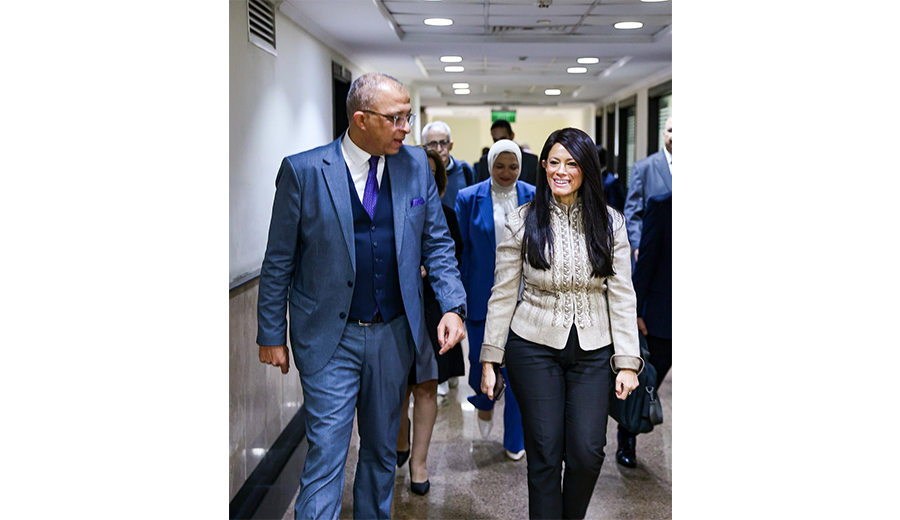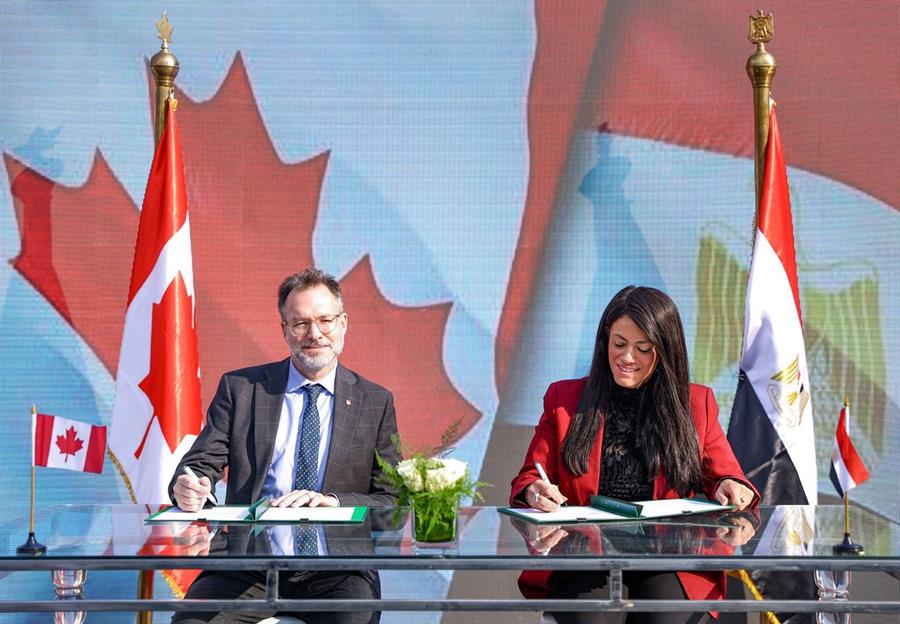Ministry of Planning and Economic Development participates in the International Conference on International Solidarity & the 2030 Agenda for Sustainable Development

27 February 2022
The Ministry of Planning and Economic Development participated on Sunday in the international conference held by the National Council for Human Rights, in partnership with the Arab Network for National Human Rights Institutions, the National Human Rights Committee in the State of Qatar, the Arab League, the Office of the High Commissioner for Human Rights, and the United Nations Development Program.The conference came under the title "International Solidarity and the 2030 Agenda for Sustainable Development - Pivotal of Goal 16: Peace, Justice and Strong Institutions".During her speech delivered by Dr. Mona Essam, Head of the Sustainable Development Unit at the Ministry, Dr. Hala El-Said, Minister of Planning and Economic Development, said that achieving peace, justice, and strong institutions are based on ensuring stability, achieving security, promoting human rights and effective governance based on the rule of law.El-Said emphasized that sustainable development cannot be achieved with insecurity, which affects economic growth and often leads to long-term negative repercussions that can last for generations.El-Said explained that the importance of the conference comes in that it sheds light on these pillars, as well as that it comes at a time when the Arab region and the world at large are witnessing rapid political, economic, and social conditions and changes.El-Said pointed out the challenges that these repercussions highlighted, the most important of which is the deepening of the financing gap for the sustainable development goals in developing countries, which were estimated at between $ 3.3 to 7 trillion annually, to which about $ 2.5 trillion were added in 2020 as a result of the repercussions of the Covid-19 pandemic.El-Said stressed that the development process in Egypt did not stop despite all the repercussions of the pandemic and the challenges it imposed, explaining the Egyptian state's keenness to intensify joint work with all partners, to consolidate peace, improve the quality of life of citizens and raising the level of services provided to them.
El-Said added that Egypt was able over the past years to take great strides towards achieving comprehensive sustainable development, as the state believes that the right to development is an inherent human right. El-Said indicated that Egypt has adopted many different initiatives, projects, and mechanisms that contribute to achieving comprehensive economic and social development.El-Said added that in light of the close connection between political, civil, economic, social, and cultural human rights, last September, Egypt launched the "National Human Rights Strategy" as the first integrated and long-term self-strategy in the field of human rights in Egypt.El-Said explained that civil society is an important partner in the process of promoting and protecting human rights in all its dimensions, and spreading awareness to contribute to creating a culture that supports corporate governance and promotes principles of transparency and effective partnership.El-Said pointed out that the Egyptian state has adopted an ambitious and serious national agenda to achieve comprehensive and sustainable economic, social and environmental development, represented in the “Sustainable Development Strategy: Egypt Vision 2030.” decision.El-Said concluded her speech by stressing that achieving comprehensive and sustainable development requires a long process of hard work and continuous commitment, during which the roles of governments are integrated. It also combines the efforts of development partners from the private sector and civil society with the government within the framework of effective, accountable, and inclusive institutions at all levels, adding that there is no way to achieve development without security.









